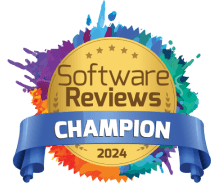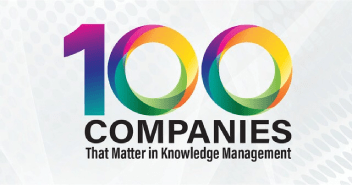
Metadata Management Solutions to Give Context to Data
Drive strategic business initiatives and growth by providing context to complex data with semantic metadata.

What Is Metadata Management?
To exploit any data, you must know what that data represents. Metadata management allows you to transform data into knowledge by connecting data from different application silos and adding additional meaning to your organizational assets. This makes your information more usable, secure and trustworthy across the enterprise.
Make Connections. Foster Strategic Decision-Making.
A future-proof business strategy requires metadata that adds meaning, utility and trust to critical enterprise information.
Progress Semaphore Describes Your Enterprise Information Using Metadata to:
Improve the searchability and discoverability of your content
Enhance the personalization and relevance of your content
Enhance cross-department collaboration and communication
Help you secure your sensitive content to reduce risk and compliance burden
Improve operational efficiency and create new revenue streams
Augment BI to answer questions you could not before for better decision making

A Customer’s Choice
We’re thrilled to announce that Progress Semaphore has been ranked
#1 in Info-Tech Metadata Management Quadrant in 2024.
A Semantic Approach to Metadata Management
The diverse nature of language and meaning inhibits our ability to leverage the full value of information, particularly if that information is held in unstructured or semi-structured formats such as documents and comments. Coupling data with its metadata allows you to interpret all data, placing it in context to its meaning, state, use and audience. Ultimately, making it more functional, actionable and understandable for business growth.

Whitepaper
Traditional metadata management solutions are “insufficient” for modern enterprises. An active metadata management approach is required to reflect the changes in data across the information supply chain and drive data agility.
Download whitepaper
How We’ll Support Your Business
With its intuitive and feature-rich user interface, Progress Semaphore serves as a unifying force—integrating data with its metadata to create a singular, comprehensive data resource, where metadata is expertly managed.
Data Inventory
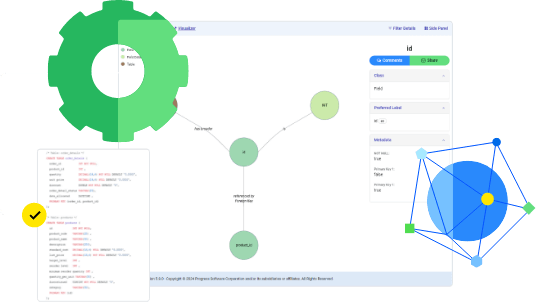
Build and maintain a holistic record of enterprise information that helps you understand your data and identify errors and gaps. Semaphore inventories and curates data assets using a semantic knowledge model to represent the data format. Additional value can be added when combined with a data catalog.
Semantic Data Catalog

Create a system or application-level data catalog that models the relationship between systems/applications and the data they contain. This enables organizations to introduce agile information governance and manage data sprawl and information supply chains, to support digital business initiatives. Semaphore automatically generates all the descriptive information and metadata required to build a data catalog.
Business Data Catalog

Link one or more business glossaries to the data catalog to create a business-centric view. This allows business and technical teams to maintain their own information within the metadata management framework. Semaphore simply links semantic models together to create a unified view of the semantic business data catalog.
Semantic Metadata Hub
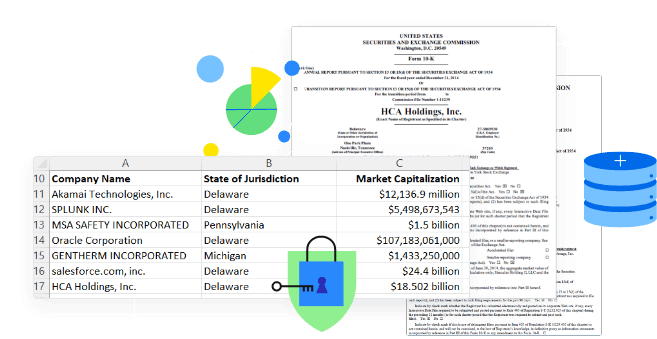
Leverage a semantic metadata hub to impact every part of the enterprise—from connecting data across business processes to helping secure sensitive information to holding the key to your most valuable assets. Semaphore connects data silos, unifies enterprise information and applies context and meaning to assets, creating a metadata hub of information that is:
- Flexible: Not limited to specific data types, predefined use cases or technologies
- Harmonizing: Unifies all types of data from disparate data sources to provide a single view of the organization’s information
- Enabling: Harmonized data provides relevant information to all stakeholders and helps meet their analytics, reporting and decision-support needs
Knowledge Graph
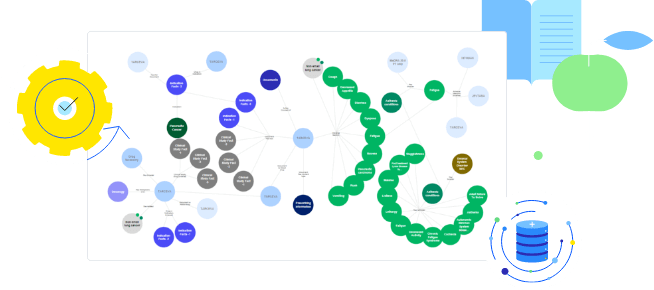
Represent your business knowledge systematically and make it easy to define different business concepts with a semantic knowledge graph. Semaphore easily integrates with any graph technology in the enterprise and provides an efficient and cost-effective way to harmonize and process information housed in data silos.
Explore Semantic Knowledge GraphsAward-Winning Metadata Management
Leader for 7+ Years
Very unique AI based metadata management solution which helped us to transform data into knowledge to increase growth and reduce risk.ANALYTICS MANAGER Financial Services
Great performance enhancement product which allows easy multiple project data processing and real time data analysis generation. This system is excellent.BUSINESS LEADER Financial Services
Semaphore is a very powerful, scalable and robust system that fits very well into the technology stack.TAXONOMISTInformation Technology
Progress Semaphore creates and manages metadata effectively and also the Automation of metadata creation is excellent.KNOWLEDGE MANAGERInformation Technology

Put Metadata at the Center of
Your Strategy
Transform your data into knowledge to prevent revenue leakage, minimize risk and accelerate growth and agility.

